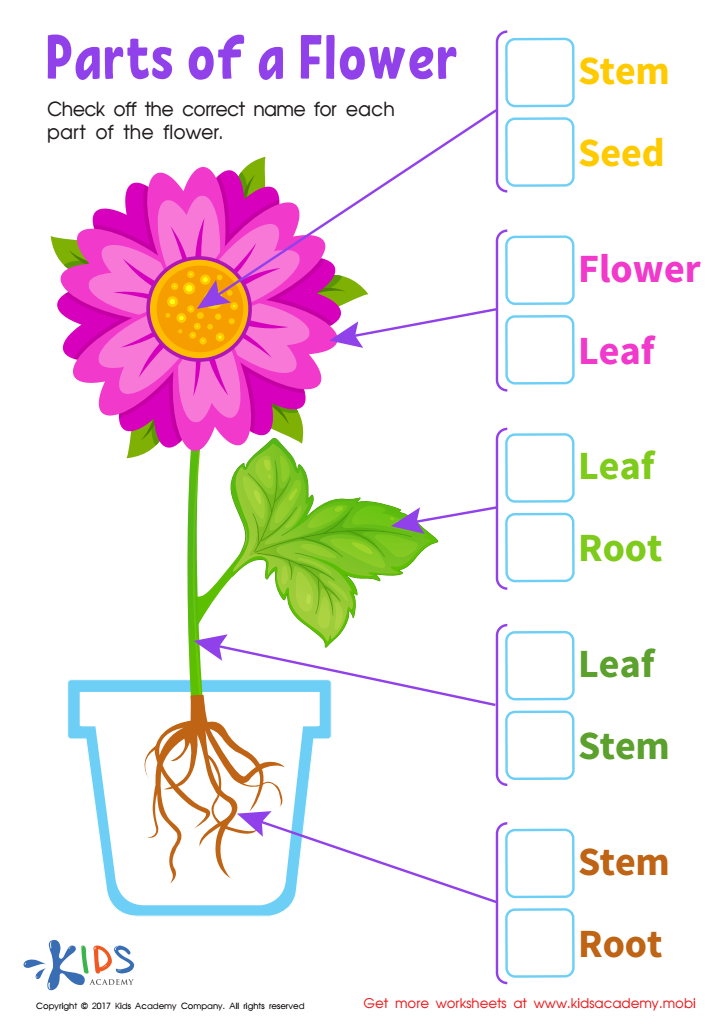Life Science Worksheets for Ages 4-9
3 filtered results
-
From - To
Discover a world of learning with our Life Science Worksheets designed for children aged 4-9 at Kids Academy! Our engaging and educational worksheets explore the wonders of life science, from plants and animals to human biology and ecosystems. Each printable worksheet combines captivating illustrations with age-appropriate activities that captivate young minds and foster curiosity about the natural world. Perfect for both classroom use and homeschooling, these resources support essential science standards and build foundational knowledge through fun, interactive challenges. Help your child explore, learn, and grow with our top-quality life science worksheets, crafted to inspire future scientists!


Parts Flower Printable


Herbivores Printable


Carnivores Worksheet
Parents and teachers should care about Life Science for children ages 4-9 because it's foundational to developing a curious and informed mindset about the world. At this impressionable age, children are naturally curious about their surroundings. Introducing them to Life Science harnesses this curiosity by offering them structured knowledge about living organisms and ecosystems. This foundational understanding encourages children to ask questions, develop critical thinking skills, and engage in the scientific process through observation, experimentation, and analysis.
Understanding Life Science also helps young learners appreciate the complexity and interdependence of life. For instance, learning about plants, animals, and their habitats fosters a sense of responsibility and respect for the environment. Such awareness can inspire future habits and attitudes toward conservation and sustainable living.
Moreover, incorporating Life Science into early education supports the development of problem-solving skills, as children learn to observe patterns, make connections, and predict outcomes. These skills are transferable across various subjects and life situations, strengthening overall cognitive development.
Additionally, Life Science projects often involve hands-on activities that enhance motor skills and collaborative projects that build social interaction abilities. In essence, Life Science not only fosters academic growth but also promotes emotional and social development, shaping well-rounded individuals.
 Assign to My Students
Assign to My Students















